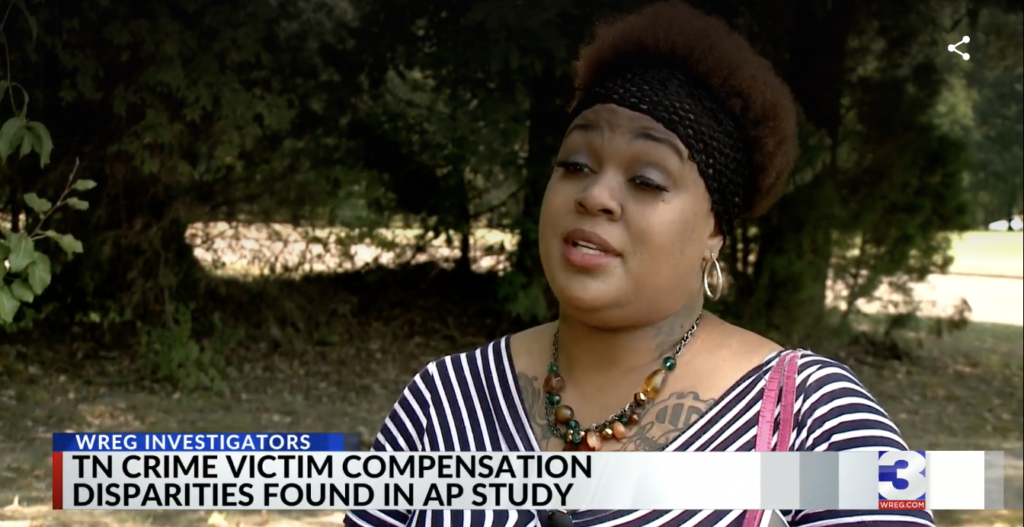
AP study: TN victim funding denied disproportionately for Black applicants
by: Stacy Jacobson
MEMPHIS, Tenn. — Black applicants to Tennessee’s criminal injuries compensation fund got disproportionately denied funding, according to data obtained and analyzed by the Associated Press.
Laquita Hughes’s sister was one of the applicants denied in 2018.
Their father was murdered and they sought help for funeral and burial costs.
“It was a total of $4,500,” Hughes said.
According to the data compiled by the AP, in 2018, 48 percent of applicants were Black and 56 percent of those applications were denied.
Since then, the gap has widened.
In 2021, Black applicants made up 50 percent of those who applied but 60 percent of the denials.
In response, state officials point out black applicants got more than 50 percent of the actual funding given out, getting $22 million of the $40 million dispersed in the last four years.
“It’s a matter of submitting the right paperwork, knowing where to go and get it,” said Tina Gray, cross services team supervisor with the Shelby County Crime Victims and Rape Crisis Center.
Gray helps applicants fill out the required paperwork to apply for the fund.
She talked about the challenges that could disproportionately affect people from marginalized communities, like having detailed documents including itemized receipts, birth certificates and pay stubs.
“Let’s say the father of someone’s child was murdered. They would have to submit documentation showing paternity, loss of support, how he financially supported them. You have to have documentation and unfortunately, cash is hard to have a paper trail with cash,” Gray said.
According to Valerie Craig, co-founder of Tennessee Voices for Victims, the compensation fund causes stress and confusion, rather than relief.
“It is a program that should help benefit victims and victims have to work really hard to get the benefits that program should be providing them,” Craig said.
She hypothesized as to why there would be a disproportionate rate of denials of Black applicants.
“You have a population that may not feel as comfortable interfacing with the police as another population. And so they don’t even get to the point where they would be able to get a police report,” Craig said.
Law enforcement or prosecutors have to fill out a form for every claim where it asks them to confirm the crime was reported within 48 hours. It also asks questions that could be subjective, like whether the victim fully cooperated with the investigation. Such requirements are set by state statute but Craig said evaluators lack compassion and an understanding of trauma-informed behavior.
“This system… it’s just making it more complicated. I think having victim’s advocates would be helpful,” Craig said.
Shelli King, a spokesperson for the Tennessee Department of Treasury, said examiners get “extensive training” by internal managers. King didn’t specify if that included anything related to trauma and said evaluators do not consider race.
In the end, Hughes’ fund application did get approved, but it took multiple attempts showing how confusing the process can be.